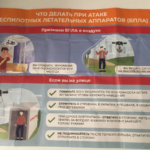Reparations and restitution: do they really have to pay?

“All! All that is earned by hard work…” (Anton Semenovych Shpak, dentist)
Recently, a question of applied importance arose here. On inheritance and reparations.
If Russia hypothetically loses the war, the question arises of compensation for losses caused by the aggressor country to the injured party. And won’t the national republics have to pay reparations together with Moscow? It would seem that the logic is there: did the republic send its guys to war – yes, it sent, did these guys harm the country the victim of aggression – yes, they did. So, pay – with money, goods, materials, raw materials. This is called reparations. The term of payments and their amount are determined for you. There are also restitutions – the return of illegally seized property in kind. For example, if they were taken out of some Ukrainian city to the Russian Federation… we are not talking about toilets and washing machines, these are small things… let’s say they took out the entire bus park with trolleybuses. Or all ambulances, or all specialized fire engines. Or all modern expensive imported equipment from a specialized oncology center. Please return it! Destroyed transformer substations, thermal power plants cannot be returned in kind, reparations are already applied here.
Yes, back to our question.
Will Tatars with Bashkorts, Buryats with Chechens, etc., pay reparations? Or, for example, if the Soviet Union were forced to pay reparations to Afghanistan, where the Shuravs so successfully built kindergartens and brought water to arid regions that they destroyed three million civilians? Should all the republics jointly with the Russian Federation (the legal successor of the USSR) pay reparation payments? For example, Ukraine? Should it (again, hypothetically) as a participant in the occupation pay for the destruction brought to Afghanistan?
In international law, the issue of legal succession is regulated by a number of conventions, the details of which I consider redundant. The general principle is this: if you inherit assets, you also take on debts and obligations. An example is the division of property of the former USSR. A large part of it was seized by Russia declaring to the other republics that, they say, we will pay off our debts, so we will take everything. They took foreign deposits, foreign real estate, the Diamond and Gold Currency Funds, all the money of Sberbank, a lot of things were taken… All together, it exceeded the size of the debts of the USSR, so that the Russian Federation did not lose anything. I remember a caricature of those times: a Russian and a Ukrainian are standing next to each other, the Russian asks – how will we divide, as brothers? No, the Ukrainian answers, better honestly!
So, Ukraine did not recognize this “fair division” of the Soviet heritage, since much of what was created during the 70 years of the existence of the USSR with the joint efforts of all nations, flew past the pockets of ordinary Ukrainians and the public treasury of their new state.
In addition, sovereign Ukraine continued the statehood of the Ukrainian People’s Republic (1917-1921), and the USSR included another formation – the Ukrainian SSR, created by the Russians in Kharkov in 1919 as a result of aggression on its territory.
Prisoners are not responsible for the debts of the penitentiary institution, sorry! Since Ukraine did not start the war in Afghanistan, but sent its sons to the colonial war at the decision of the Ukrainian collaborationist government, formed from Kremlin proteges, then, sorry, contact the prison administration with complaints. Prisons of peoples!
Exactly the same principle applies to Latvia and Lithuania, to Georgia and Moldova. They do not inherit the rights of the USSR, so they do not have to pay any reparations and restitutions.
It is likely that in the event of the appearance on the map of the world of a new state freed from colonial oppression, the burden of reparations will not be extended to it. If only it does not claim the inheritance of the metropolis that has ceased to exist. What does this mean? If, conditionally, Tatarstan gains true sovereignty and leaves the Russian Federation, not claiming the property of the Russian Federation outside of Tatarstan (gold and currency reserves, financial assets in foreign banks, real estate abroad, etc.), then applying restitution and reparations to it will no reason.
Here we considered the general principles of solving issues of compensation for losses caused by the war. In practice, the decision options will depend on the political schedule – who will declare himself the rightful successor, how strong will he be in order to take away part of the disputed property and various assets from the neighbors? Will the neighbors watch silently as they are being robbed, or will they protest? If they do, in what way? This can be a topic for subsequent (in distant chronology) articles by the author. For those who do not want to wait for the development of the topic in the genre of journalism, we can recommend the study of works from the “Postapocalypse” category, which are now filled the literary and artistic sphere. After all, the Russian Supreme Ruler has set such a flywheel of events in motion that you should not count on the further immutability of the world. It can happen that no one will care about reparations, and there will be nothing to pay them from!


Leave a Reply